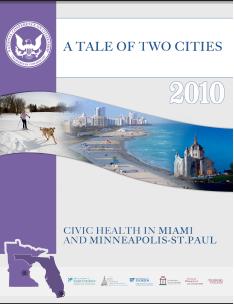Archive for the ‘Constitutional issues’ Category
How to destroy public faith in democracy
I generally dislike the airy way cynicism is worn like a badge of pride around political conversations. When people say “that’s a typical politician’s answer”, the phrase ‘you get the politicians you deserve’ springs to mind.
 But in recent years, politicians seem to have jumped the fence. Instead of sticking to their story – that their job is to deliberate and act in the public interest – the vast majority appear to be happy to temporarily adopt the line that they are there to do whatever the public want them to do.
But in recent years, politicians seem to have jumped the fence. Instead of sticking to their story – that their job is to deliberate and act in the public interest – the vast majority appear to be happy to temporarily adopt the line that they are there to do whatever the public want them to do.
So in 2008, the previous Labour government announced an obligation on local authorities to encourage local petitions coupled with an obligation to respond to them in a clearly defined way.
Now, there’s a more precise way of interpreting that, but seeing as few local authorities know what it is, and seeing as I heard a rumour somewhere that the Coalition has modified this obligation (or something), I really can’t be bothered to look any further. Read the rest of this entry »
On democracy, environment and the Red Tape Challenge
 April 7th 2011 was a dark day both for the Coalition government’s commitment to be the ‘greenest government ever’, and for democracy in the UK. That was the day that the government launched its Red Tape Challenge.
April 7th 2011 was a dark day both for the Coalition government’s commitment to be the ‘greenest government ever’, and for democracy in the UK. That was the day that the government launched its Red Tape Challenge.
The idea of cutting red tape has a long and undistinguished history in the UK; undistinguished in that it is never a job that anyone has said is done.
Under Conservative Prime Minister John Major in the mid-1990s, there was a ‘deregulation unit’. Major memorably described tackling red tape as like trying to wrestle with a greasy pig.
Across governments, the idea of slashing red tape never went out of fashion. Under Tony Blair, New Labour established a ‘red tape task force’. And Gordon Brown claimed to be the ‘enemy of red tape’. Read the rest of this entry »
Mulling over a ‘right to manage’
Wonderful pop-up social enterprise thinktank Popse (possibly the first pop-up thinktank ever, but certainly not the last) popped up in London’s Exmouth Market from 9-13 May.
Among other hot topics was a proposal from the Waterways Project that a community ‘right to manage’ (or a ‘presumption in favour of community management’) should join the existing proposals in the Localism Bill. Read the rest of this entry »
House of Lords Reform, Long-termism and Future Generations
 The House of Lords Reform Draft Bill and accompanying White Paper were presented to Parliament by Deputy Prime Minister Nick Clegg on Tuesday 17 May.
The House of Lords Reform Draft Bill and accompanying White Paper were presented to Parliament by Deputy Prime Minister Nick Clegg on Tuesday 17 May.
The documents set out long-awaited options for a reformed House of Lords.
The Bill is grounded in a smaller, 80%-elected House, retaining (controversially) the Bishops. The White Paper indicates that a 100% elected upper House has not been ruled out.
One striking feature of the proposals is that they have nothing at all to say about the functions of Westminster’s upper house. In fact, the White Paper’s summary of the proposals states that “[t]he reformed House of Lords would have the same functions as the current House. It would continue to scrutinise legislation, hold the Government to account and conduct investigations.”
So the proposed changes would be in form, not in substance. Read the rest of this entry »
UK Campaign for a Stronger Democracy?
 I’ve been catching up on the podcasts from Radio 4’s ‘From Our Own Correspondent’ – always a pleasure – and I noticed that the last two programmes both had a life’s like this reportage piece from France talking about apartment living and the sort-of communal spirit that it engenders and one on the more whimsical healthcare treatments (and related anecdotes about the powerful local health lobbies) that the French state will fund. Read the rest of this entry »
I’ve been catching up on the podcasts from Radio 4’s ‘From Our Own Correspondent’ – always a pleasure – and I noticed that the last two programmes both had a life’s like this reportage piece from France talking about apartment living and the sort-of communal spirit that it engenders and one on the more whimsical healthcare treatments (and related anecdotes about the powerful local health lobbies) that the French state will fund. Read the rest of this entry »
Miami & Minneapolis-St Paul: contrasting results but the same issues?
 This study – featured (and partly written) by Peter Levine illustrates the way that different civic cultures can promote and legitimise civic engagement in different – and better ways. It seems fairly clear that Minneapolis-St Paul is a much better place to live in this respect:
This study – featured (and partly written) by Peter Levine illustrates the way that different civic cultures can promote and legitimise civic engagement in different – and better ways. It seems fairly clear that Minneapolis-St Paul is a much better place to live in this respect:
“In both communities (as elsewhere in the United States), people with more education and income tend to engage more in civic affairs. But individuals in Minneapolis-St. Paul who are in the lowest income group are more likely to volunteer, buy viagra online attend public meetings, work with neighbors, participate in politics outside of elections, and participate in associations than are people in the wealthiest tier in Miami. An individual with a high school education in Minneapolis-St. Paul is about as likely to be engaged as an individual with a college education in Miami.”
For me, it does raise the point
that a positional look at engagement is important. In many ways, surely a relatively low disparity between the involvement of different demographic segments is as (more?) important than a high level of engagement in itself? After all, a highly engaged and vibrant democracy in which the bottom 25% of the social ladder isn’t involved at all has a fair few parallels with a slave-owning society…
Electronic Voting
Apologies for the light posting here lately – I’ve been busy with the Political Innovation project. There’s a series of posts buy viagra canada I’ve added there on ‘What Politicians need to know about social public information.’
I’ll be reviving this blog shortly. In the meantime, here’s something on electronic voting that I found via O’Conall Street.
Informed public = better democracy?
As Churchill* once said: “When the facts change, I change my mind. What do you do, sir?”
This article in The Boston Globe makes the argument that democracy is actually damaged
by the way that people respond to being contradicted by evidence (they dig in rather than adapt to it). It uses this satirical post from The Onion to make the point that the virtue of open-mindedness isn’t a universal one;
Spurred by an administration he believes to be guilty of numerous transgressions, self-described American patriot Kyle Mortensen, 47, is a vehement defender of ideas he seems to think are enshrined in the U.S. Constitution and principles that brave men have fought and died for solely in his head.
Kyle Mortensen would gladly give his life to protect what he says is the Constitution’s very clear stance against birth control.
“Our very way of life is under siege,” said Mortensen, whose understanding of the Constitution derives not from a close reading of the document but from talk-show pundits, books by television personalities, and the limitless expanse of his own colorful imagination. “It’s time for true Americans to stand up and protect the values that make us who we are.” Read the rest of this entry »
Coalitions and representative democracy
Not being a supporter of either of the coalition parties, the current range of opportunities to accuse them of betraying their manifesto commitments are very tempting. It’s hard not to relish a few years of Nick Clegg having this video replayed constantly in the light of Tuesday’s budget VAT hike.
But taking the partisan hat off, the upsides for the quality of democracy are hard to avoid as well. I’d broadly agree with Lib-Dem blogger Mark Thompson in this ‘campaign in majoritarian, govern in coalition’ post that the experience of participating in – or watching – coalition government will bring a number of improvements to the way that political discourse is conducted in the UK. If it results in more equivocal value-based electioneering, it can only be a good thing. Read the rest of this entry »
The mother of invention?
Necessity, that is. It’s Budget Day and the cuts are in the post. My incredible predictive powers tell me that government spending may be under a bit of pressure shortly.
 If you’re not a regular over at William Heath’s Ideal Government blog, this post is a good introduction to his general themes. In his overview of his preoccupations, this one stands out:
If you’re not a regular over at William Heath’s Ideal Government blog, this post is a good introduction to his general themes. In his overview of his preoccupations, this one stands out:
- We haven’t cheap viagra in uk yet seriously started on co-creation or participative public services where the systems delivered are formally designed successfully to meet a real need, and created, measured and improved with active input from those it’s intended to help
The possibilities (and often, the idealism) of open-source advocacy couched in these terms may offer us a clue to where the value of participation may really be acknowledged in the short term. At any point in the day, the most enraged person in the UK is probably the
one who has had to deal with the sublime idiocy of HMG IT procurement most recently.
As a microcosm of what’s wrong with our democracy, there can be few better examples. It’s substantially driven by insidious pressure groups (suppliers) who have captured departements and are capable of cranking up demand for what they are selling. As my friend Dominic Campbell put it recently, it’s time people start getting fired for buying IBM.
Politicians are particularly exposed here. The level of responsibility that they bear for expensive IT failures or the purchase of White Elephants is roughly at an inverse proportion to their ability to make those decisions. IT procurement is a complex and (deliberately?) mystifying process. Civil servants can often get away with huge mistakes and acts of carelessness that would be difficult to imagine in the Ministry of Defence the NHS.
And while some of us have huge reservations about the potential of citizens to get involved directly shaping schools or local authorities, IT procurment – with the existance of a large, well-networked open-source community (and a bunch of clever FOI-savvy geeks who really hate IT procurement) – may well provide the textbook example of how participative design can result in much better outcomes, better strategy, more bureaucratic accountability and tons of cost-savings.
We’ll see. (Have a look at this Government IT spend infographic that William points to by the way if you want to see how much cash is at stake here).

